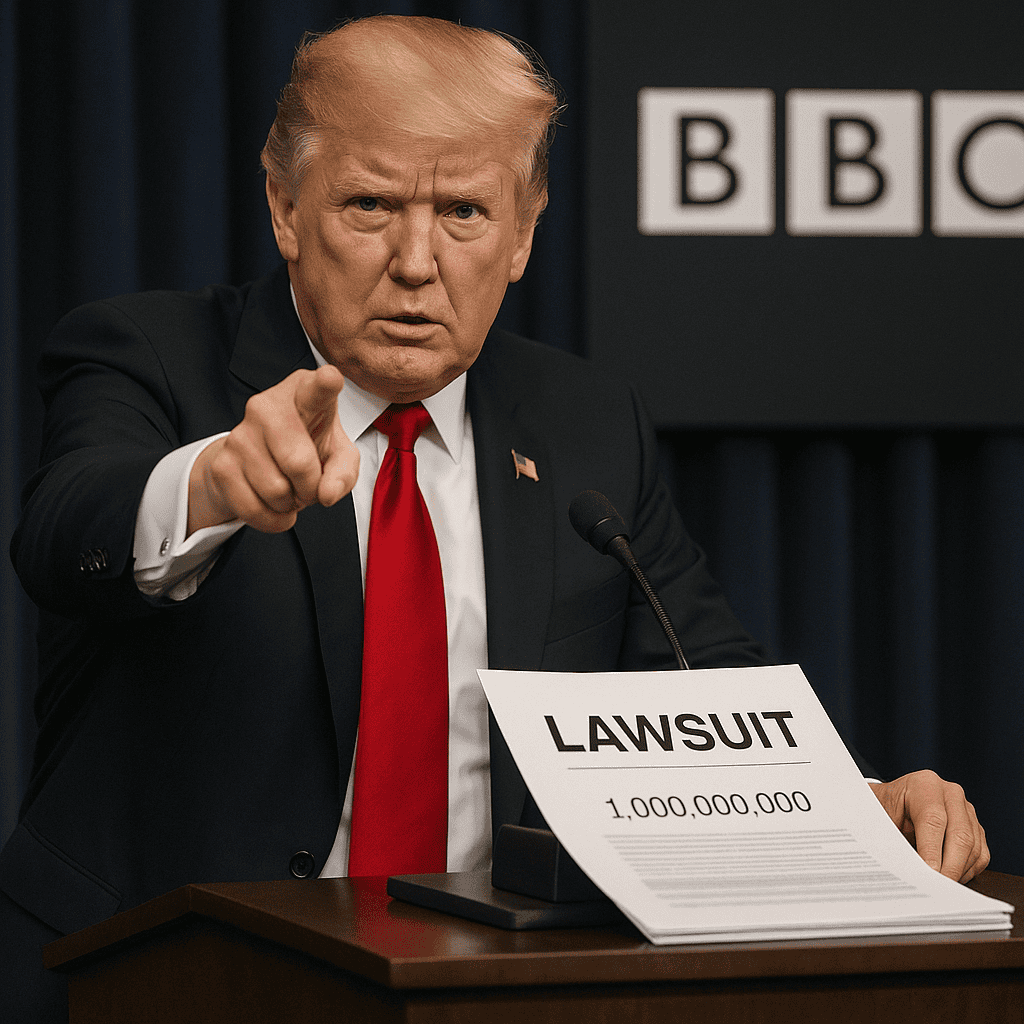From ABC to BBC – Trump’s Media Litigation Roadshow Claims New Victim
Ben Thomson, LawFuel contributing editor
The BBC finds itself staring down the barrel of Donald Trump’s latest legal offensive, this time demanding $1 billion for a Panorama documentary edit. With two top executives already out the door, Britain’s public broadcaster faces what may be its costliest crisis in corporate memory.

The timing couldn’t be worse. Just as Celebrity Traitors pulled impressive ratings, the BBC’s leadership structure imploded. Director General Tim Davie (pictured) and News CEO Deborah Turness resigned within hours of each other, a double departure not seen since 2004’s Hutton Report fallout claimed chairman Gavyn Davies and DG Greg Dyke.

But this isn’t 2004. And this isn’t Hutton.
Trump’s legal machine has already demonstrated its appetite – and its success rate, against American media targets. ABC News settled a defamation suit for $15 million after an anchor incorrectly stated Trump had been found “liable for rape,” while Paramount Global paid $16 million to resolve a dispute over a CBS interview with Kamala Harris.
Now the President wants his pound of British flesh: a full retraction, groveling apology for “false, defamatory, disparaging, misleading and inflammatory statements,” and compensation for alleged harm. The Friday deadline? Pure theater. The $1 billion figure? It’s classic Trump, but something that needs to be taken seriously given the Trump track record against a badly deficient and faulty BBC.
The Litigation Pattern
Trump’s media defamation strategy follows a predictable playbook. He’s systematically targeted major outlets, securing settlements from both ABC and CBS parent company Paramount Global in recent months.
The approach combines aggressive demand letters, public pressure through social media, and the implicit threat of drawn-out litigation that could cost defendants more in legal fees than settlement figures.
Other Trump media litigation includes his lawsuit against CNN (seeking $475 million for allegedly comparing him to Hitler), his case against The New York Times over the “tax fraud” reporting, and various state-level defamation claims against individual journalists and smaller outlets. Most settle quietly. Some fight. Few win outright dismissals.
The BBC case adds international jurisdiction complexity as Trump would likely need to pursue claims in UK courts under English defamation law, which historically favored plaintiffs but has been reformed since the 2013 Defamation Act to raise the bar for claims.
The BBC’s Self-Inflicted Wounds
What makes this mess particularly delectable for legal observers is the BBC’s spectacular own goal. The Panorama edit in question wasn’t subtle editorial judgment it was an objectively problematic splice that altered the substance of Trump’s remarks.
It follows disclosure that is unsurprising to many of the Corporation’s undisguised left-leaning culture, embracing anything and everything pro-diversity, pro-LGBTQ and anti-Israel and – of course – anti-Trump.
The corporation took six days to apologize for the false clip. Six days during which Telegraph claims about the documentary and “systemic bias” metastasized into a full-blown crisis. By the time BBC Chair Samir Shah finally addressed the issue Monday, two executives had already walked the plank.
The delay violated Crisis Management 101: admit error early, control narrative, move forward. Instead, the BBC let others define the story while leadership remained conspicuously silent. Whether this represented political calculation, internal paralysis, or simple incompetence hardly matters now.
What Comes Next
The BBC faces unenviable options. Fight Trump in court and risk years of expensive litigation, damaging headlines, and potential eight-figure exposure. Settle quickly and invite accusations of capitulation to political pressure while establishing precedent for future claims.
The corporation’s institutional bias debate now occurs within a leadership vacuum. Whoever eventually steers this particular ship will inherit a demoralized organization, skeptical public, and a US President with demonstrated willingness to extract costly settlements from media organizations.
For lawyers, this case offers a masterclass in defamation strategy, crisis mismanagement, and the intersection of political pressure with editorial independence. The billable hours alone could fund a small broadcaster.
Trump’s deadline expires Friday. Whether the BBC has the institutional backbone to fight—or the pragmatic wisdom to settle strategically—remains unclear. What is clear: this won’t end quietly, cheaply, or quickly.